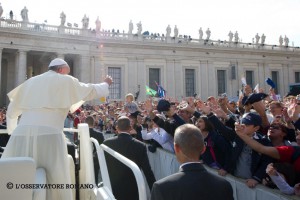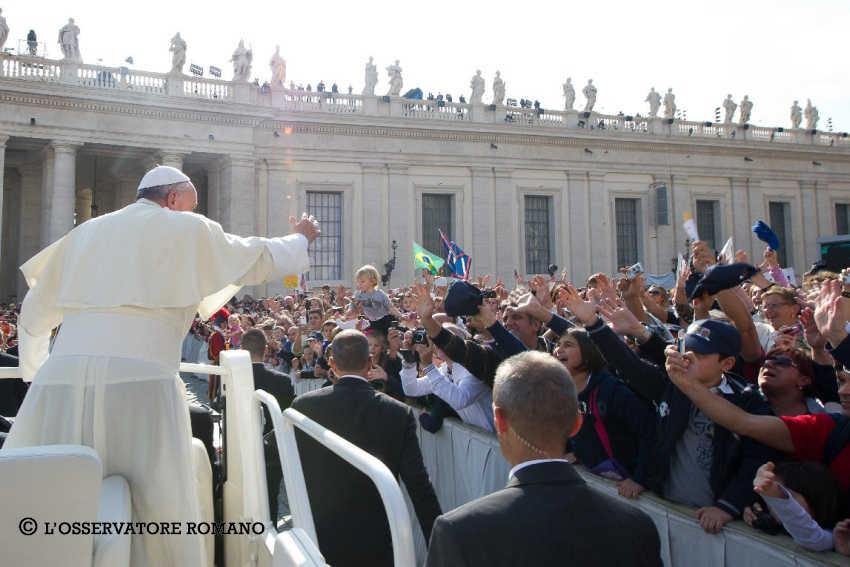
From time to time, I continue to receive queries from well-meaning people asking why we have an embassy to the Holy See. It’s not a nation state, they suggest. So what can our interests be?
I would hope that regular readers of this blog or our twitter feed have a pretty good idea by now of what we do and why. My recent note about co-operation with other embassies to the Holy See mentions some of the big ticket foreign policy items on which we are engaged. I think that two events this week also help provide the answer to that question.
First, the visit of President Putin to the Holy See. This was a meeting of, according to Forbes magazine, two of the top four most powerful people in the world. On the agenda were key issues of the day: Syria and the Middle East, the role of governments in economic development and the protection of human rights, the relations between faiths, the role of the family in today’s society. It was not just polite chit-chat. Pope Francis has had genuine impact on global debates on these issues in the short time since he was elected.
Secondly, the publication of the Apostolic exhortation, written by Pope Francis, entitled “Evangelii Gaudium” or “The Joy of the Gospel”. It is directed at the faithful of the Catholic Church (remember, all 1.2 billion of them). But it is also relevant to governments. While dealing in large part with specific aspects of Church teaching, across its 288 paragraphs it covers Pope Francis’ response to many of the challenges facing world leaders today, from economic systems to inequality, dialogue between faiths and freedom of religion and expression. I think it is fair to ask the question: how many world leaders are prepared to address the principal global issues facing mankind in such a comprehensive and bold manner?
Yes, the Holy See is not a standard power. It is not a nation state. Yet its global impact is extensive, its voice respected, and its influence real. If we did not have an embassy to the Holy See, I would want to know the reason why.

